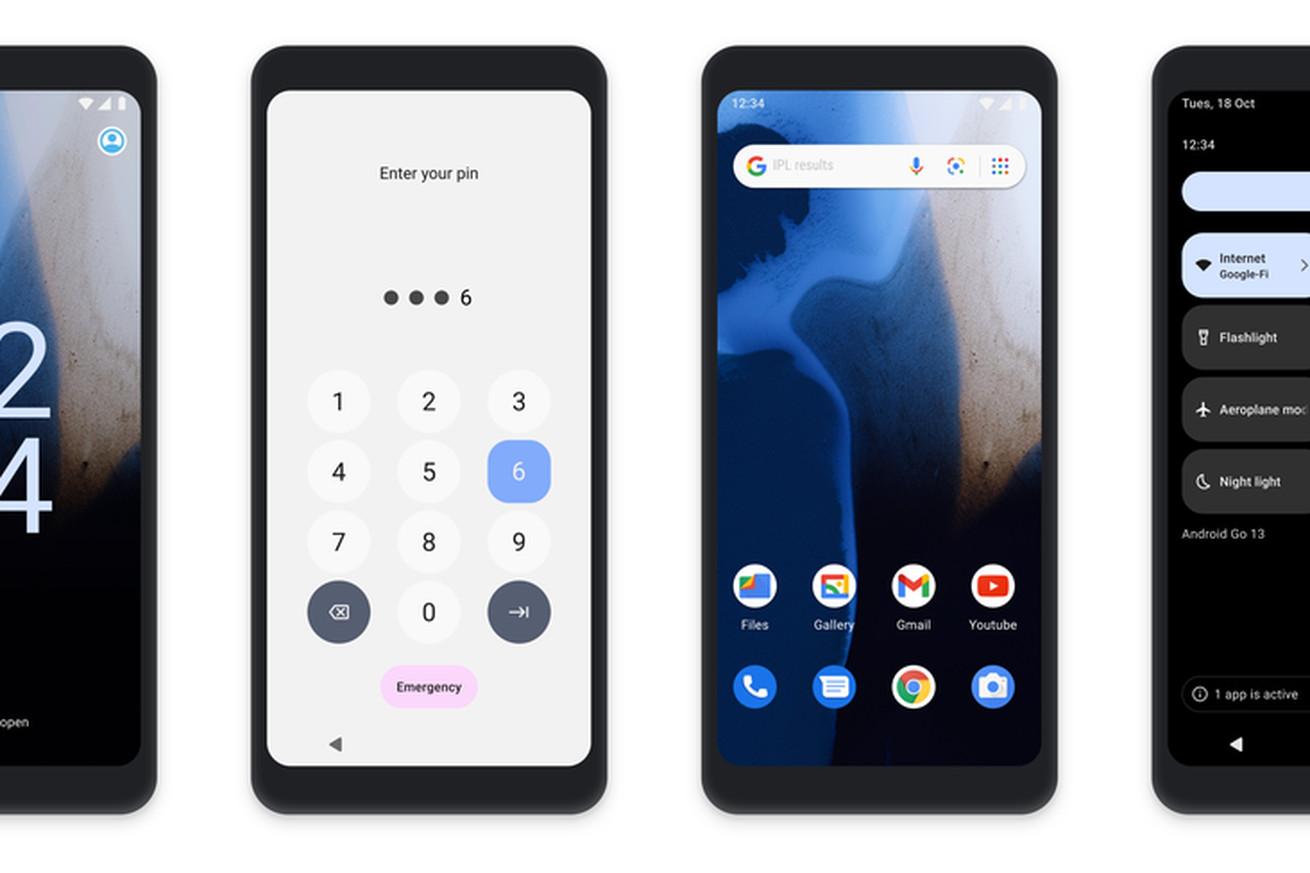
Google has announced that over a quarter of a billion devices that people use each month are running Android Go edition, which is designed for phones with limited storage and memory. However, the new version that Google announced on Wednesday, Android 13 Go, will require more power than its predecessors.
Based on the latest version of Google’s mainline OS, Android 13 Go edition adds a version of the Material You system, letting you pick one of four color schemes based on your wallpaper. When Google originally announced Material You as a feature of Android 12 (though the Go edition of that OS didn’t feature it), it also touted the inclusion of fancier animations. Its post about Android 13 Go doesn’t mention those, however — it’s possible those would put too much strain on the types of phones the OS is designed for.
The new version also adds Google’s streamlined Google Play System Updates system, which the company says will help users keep their phone up to date without taking up a bunch of room and let it roll out new features and security patches without the need for a full-bore phone update. Android 13 Go also includes features from the regular version of the OS, like notification permissions and the ability to change which language an individual app uses.
/cdn.vox-cdn.com/uploads/chorus_asset/file/24124834/Screenshot_2022_10_19_at_14.33.31.png)
The company says new phones with Android 13 Go will start appearing in 2023. That’s an important note because it’s very possible that a lot of people using Android Go will have to upgrade their hardware to get the new version. For years, Google has pitched it as “built for smartphones with less than 2GB of RAM,” but as Esper editor Mishaal Rahman points out, the Android 13 version will require at least 2GB of memory, as well as 16GB of storage. That’s a significant step up from the 1GB requirement for the Android 11 and 12 versions, so phones built for the new version of Go are going to have to be a bit beefier to handle it.
Source: The Verge